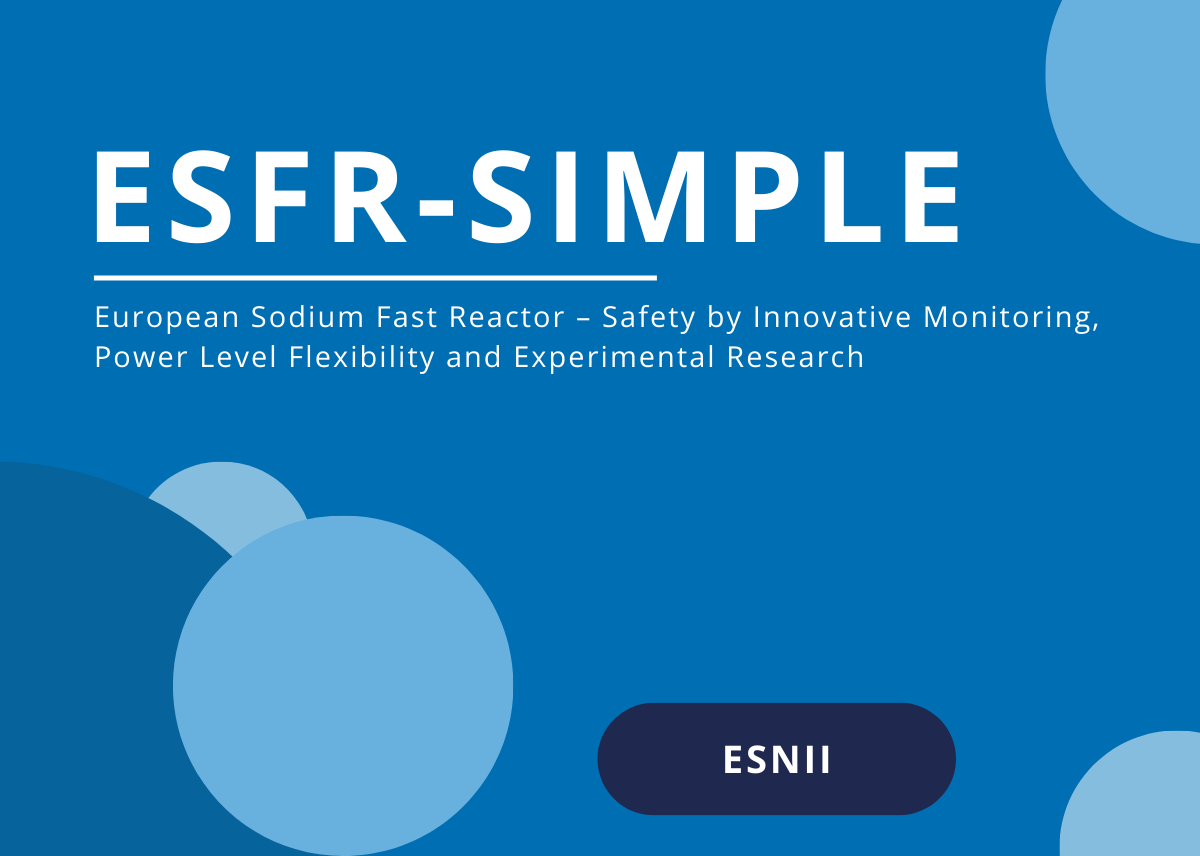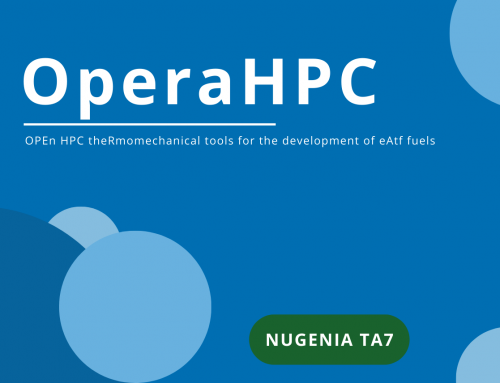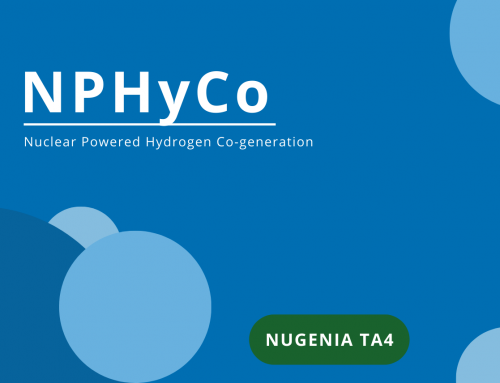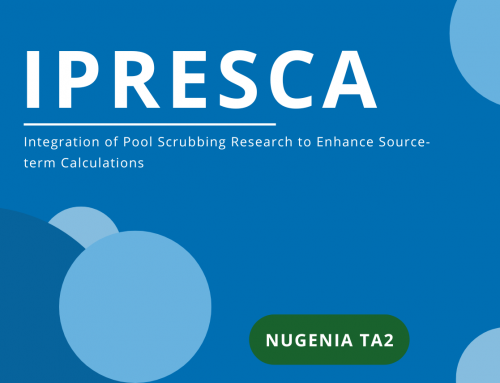
OBJECTIVES
- Rethink a simpler, more cost-competitive ESFR-SMR design that is safe and sustainable in terms of resources.
- Assess the impact of alternative technologies, such as metallic fuel and compact secondary system design, on safety and cost-competitiveness.
- Propose, develop and assess advanced methods for monitoring and processing operational data using artificial intelligence.
- Produce new experimental data in order to facilitate the qualification of innovative components, such as expansion bellows, core catcher and thermos-electric pumps.
- Ensure that the knowledge generated in the project is shared not only among the consortium institutions, but also with a range of EU and international stakeholders.

EXPECTED IMPACT
- The ESFR-SIMPLE project aims at improving the safety assessment of SFR thanks to qualified numerical toolsand experimental data in support.
- The project aims at developing innovative components and advanced digital methods to use data from multiple sensors.
- The ESFR-SIMPLE project is based on a large consortium of experts of Europe improving the global knowledge thanks to long-term research based on the available experimental facilities.
- The project proposes a shared approach on the core catcher via the elaboration of experimental data. The dissemination activities, public acceptability studies and the technical meetings with the advisory board will contribute to share the developed safety approach.
- The ESFR-SIMPLE project places the safety criteria at the highest level in the design of the high- and low-power reactors. The research on MOX and core catcher features could be used in the long-term research and other types of prototypes such as ALFRED, ALLEGRO or MYRRHA. The proposal to include some unprotected transients in DBA could be seen as a first step to the core meltdown elimination. The evaluation of the public and stakeholders’ opinion and its possible influence on the design for public acceptability could be related to the global nuclear world.

HIGHLIGHTS
The project aims to lay solid foundations in three research areas:
- Sodium Fast Reactors: Maintaining and strengthening European knowledge and skills on SFRs using European facilities and the expertise of the consortium.
- Reactor Design: Using the knowledge acquired in recent years to propose a reactor design that meets the needs of new and evolving markets.
- Digital Technologies: Demonstrating the advantages of new digital technologies to provide real-time operational data processing of future reactors.

PARTNERS
CEA, EDF, ENEA, Framatome, HZDR, IPUL, KIT, LEMTA,
Liège University, POLIMI, STUBA, UCAM, PSI, EPFL, ANL, JRC

DURATION
1 October 2022 – 30 September 2026 (48 months)
€ 6 506 233,75

CONTACT
Technical Project Leader:
Pierre Sciora, CEA

FOR DOWNLOAD

This project has received funding from the EURATOM research and Innovation programme 2021-2025 under Grant Agreement No 101059543.




